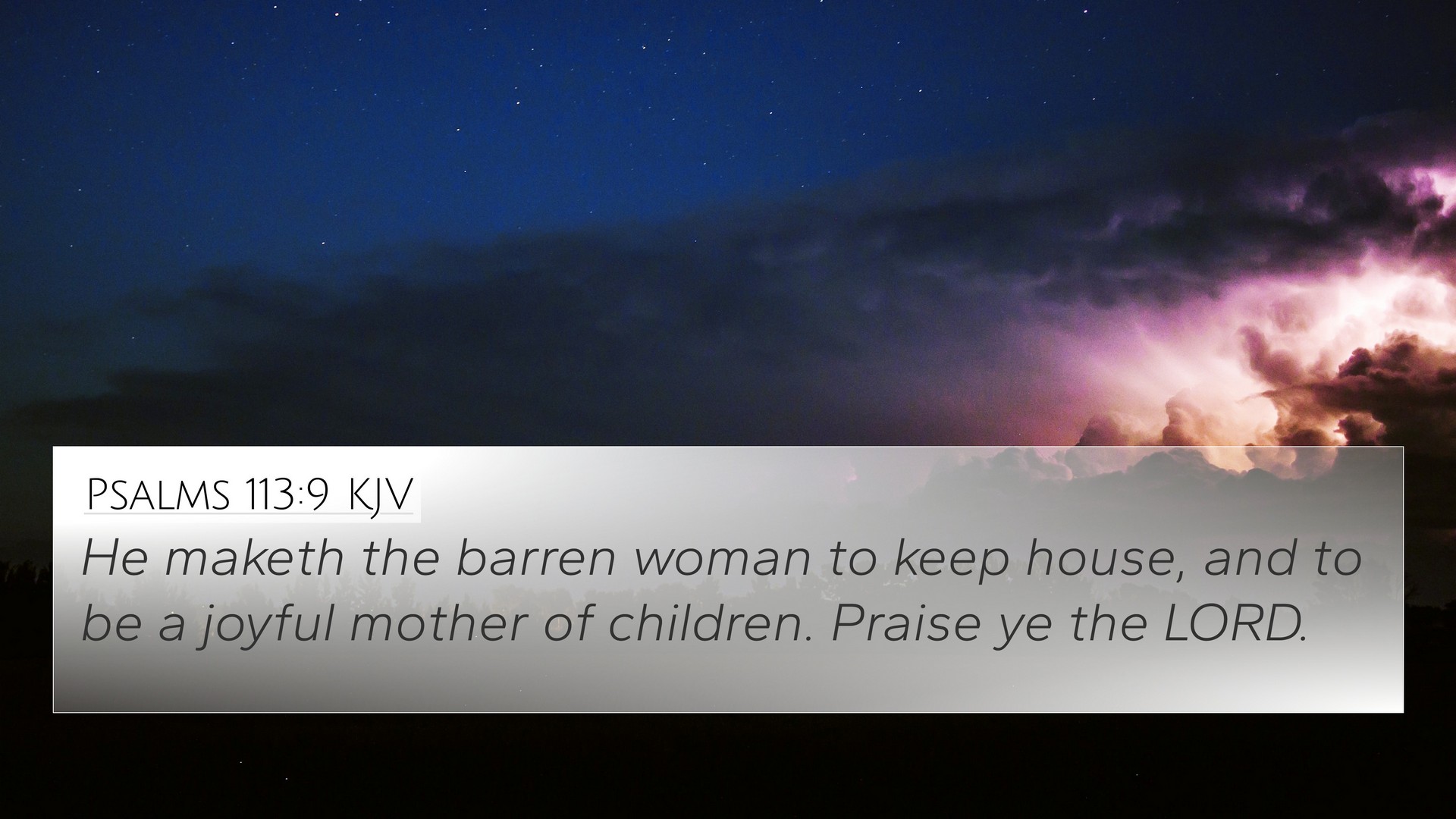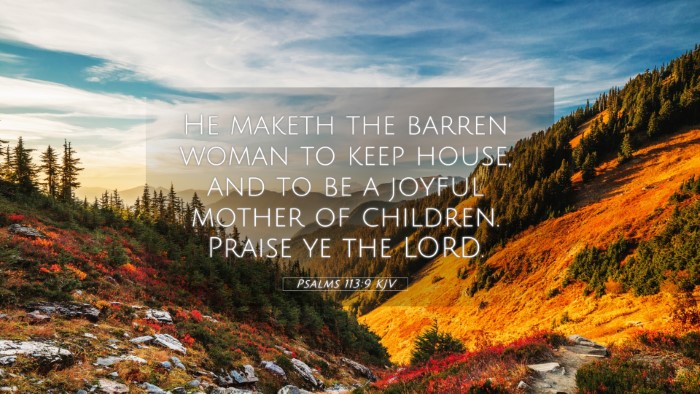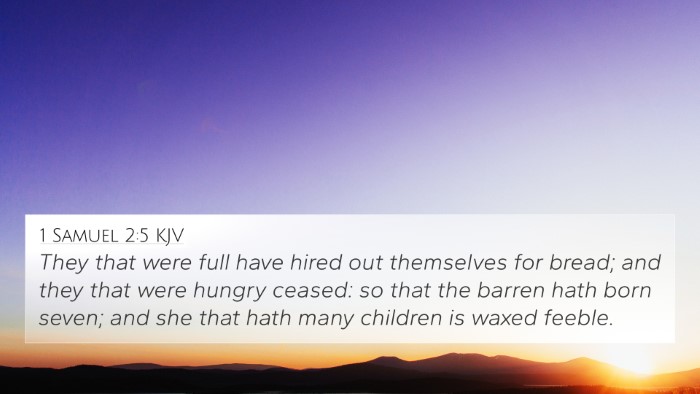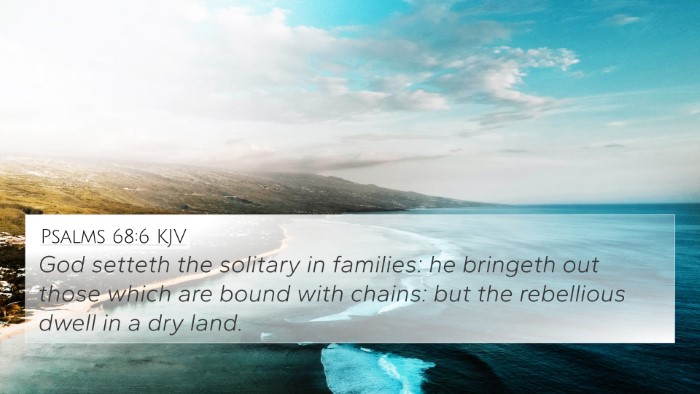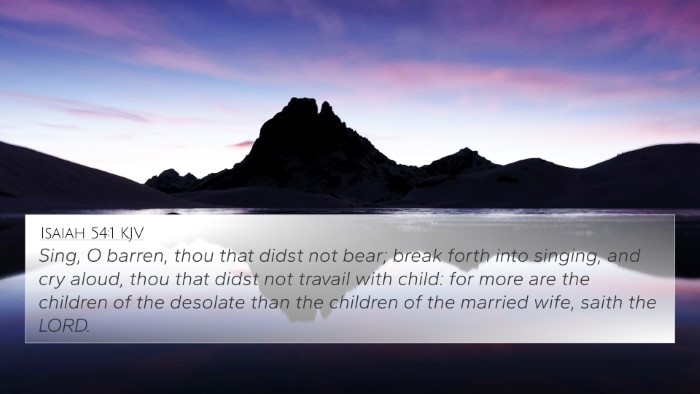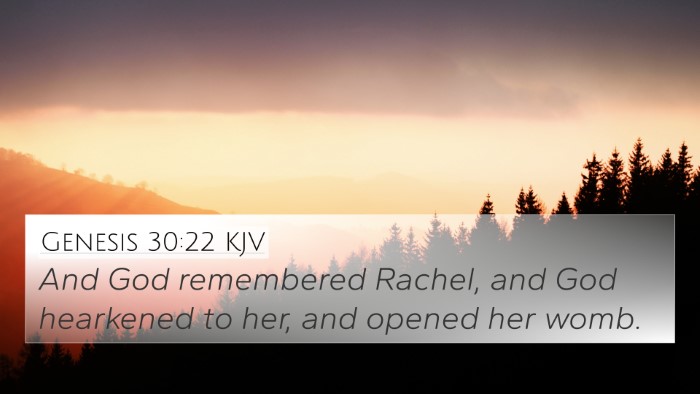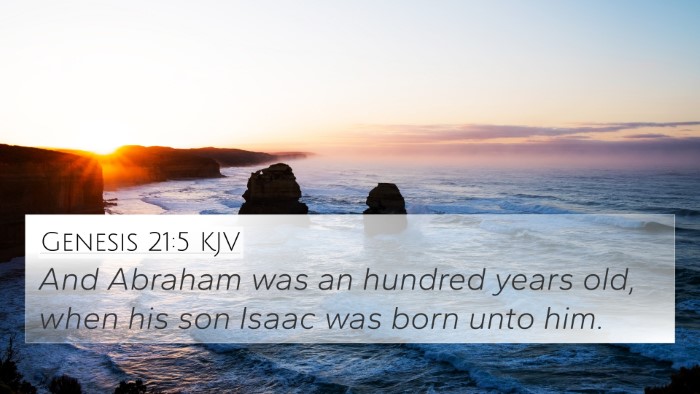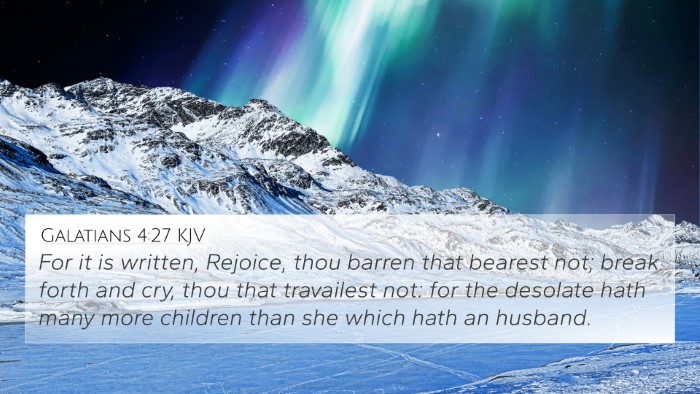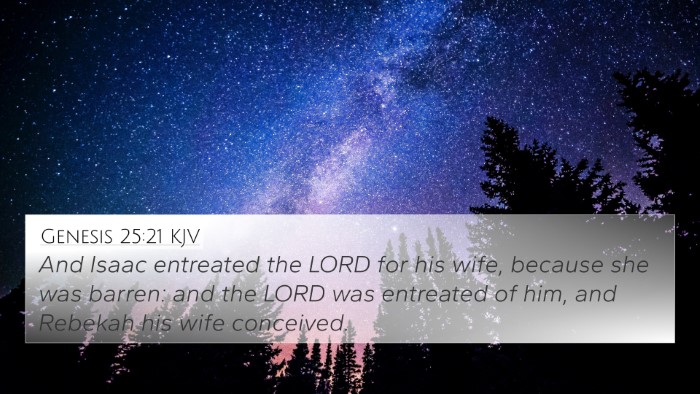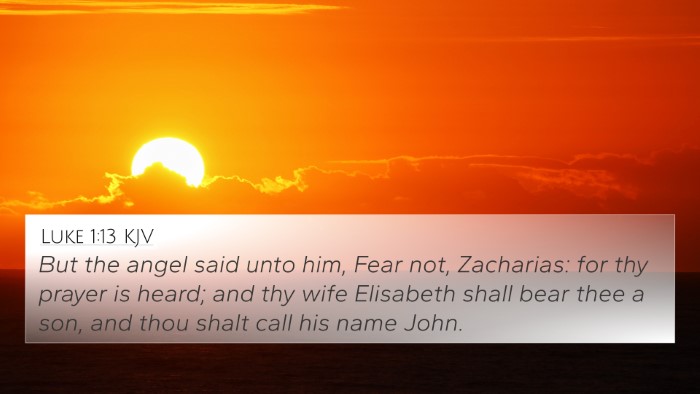Bible Verse Meaning: Psalms 113:9
This verse reads: "He maketh the barren woman to keep house, and to be a joyful mother of children. Praise ye the Lord." (Psalms 113:9). This passage underscores the miraculous power of God to transform lives and to bring joy from desolation. In exploring the meaning of this verse, we can draw insights from various public domain commentaries, including those by Matthew Henry, Albert Barnes, and Adam Clarke.
Meaning and Interpretation
Psalms 113:9 embodies themes of divine grace, transformation, and the joy of motherhood. Here’s a breakdown of key insights:
Divine Transformation
Matthew Henry states that God's ability to change a woman's fate from barrenness to motherhood is a testament to His omnipotence. It highlights His power over nature and societal norms, providing hope to those who find themselves in despair.
Albert Barnes emphasizes that this transformation is not solely physical but also spiritual. A barren woman symbolizes desolation and sorrow, while becoming a joyful mother signifies the blessings of family and community, reflecting God’s generosity and mercy.
Adam Clarke notes that the phrase "keep house" suggests the role of women as foundational to family life, indicating that motherhood is not just a blessing of children but also a call to nurture and manage the household.
Joy and Praise
The conclusion of this verse with "Praise ye the Lord" serves as a reminder that the ultimate response to God’s blessings should be one of gratitude and worship. This encourages believers to acknowledge divine intervention in their lives.
Moreover, the transformation described in this verse serves as an encouragement for those facing personal struggles, delivering the message that joy can emerge from barrenness.
Cross References
Psalm 113:9 connects deeply with several other Biblical verses. Here are 10 notable cross-references:
- 1 Samuel 1:27-28: Hannah's prayer for a child and her eventual joy at becoming a mother parallels the transformation in Psalms 113:9.
- Luke 1:25: Elizabeth rejoices for being able to conceive John the Baptist, affirming God's grace toward the barren.
- Isaiah 54:1: Calls on the barren to rejoice, affirming that God brings forth life where there was none.
- Genesis 21:6: Sarah's laughter and joy in her pregnancy reflect similar themes of divine joy and transformation.
- Psalm 127:3: "Children are a heritage from the Lord," linking the blessings of family to divine favor.
- Galatians 4:27: Paul's reference to the barren and the joyful reflects the new covenant of grace.
- John 15:11: Jesus speaks of joy being complete, resonating with the joy referenced in Psalms 113:9.
- Isaiah 49:20-21: This passage illustrates the joy of motherhood through God’s promise and provision of children.
- Matthew 19:14: Jesus welcoming children embodies the joy and value of motherhood and family in God’s kingdom.
- Romans 4:17: Abraham’s faith in God bringing life from barrenness reinforces the theme found in Psalms 113:9.
Connections Between Bible Verses
This verse is exemplary for the practice of cross-referencing Bible texts as it weaves together stories and themes that resonate throughout Scripture:
- Thematic Bible Connections: The theme of barrenness leading to joy connects across both Testaments, visible in both the Old Testament narratives and New Testament teachings.
- Linking Scriptures: The connections between the joy of mothers in Scripture can be explored through these cross-references, leading to a deeper understanding of God’s nature and His plans for families.
- Comparative Analysis: Examining the accounts of barren women throughout the Bible offers a comparative view on how God intervenes in human stories.
- Inter-Biblical Dialogue: The dialogue between the themes in Psalms and the events in the lives of Biblical characters encourages readers to find personal relevance in their journeys.
How to Use Bible Cross-References
To maximize understanding when studying Psalms 113:9 and similar passages, consider these methods:
- Bible Concordance: Use a concordance to find related verses and build a comprehensive understanding of the themes presented.
- Cross-Reference Guide: Utilize a cross-reference guide to identify connections between verses that enhance your understanding.
- Cross-reference Study Techniques: Engage in layered Bible study by comparing narratives and teachings across different books.
- Bible Reference Resources: Invest in quality Bible reference materials to support a deep dive into scripture.
- Chain References: Follow thematic chain references to navigate through scripture and gain holistic perspectives.
Conclusion
Psalms 113:9 is rich in meaning and provides profound insights about God’s transformative power, the joy of motherhood, and the importance of praising God for His blessings. This scripture serves as a beacon of hope and encouragement for the barren and calls all believers to recognize and celebrate the gifts of life and family.
